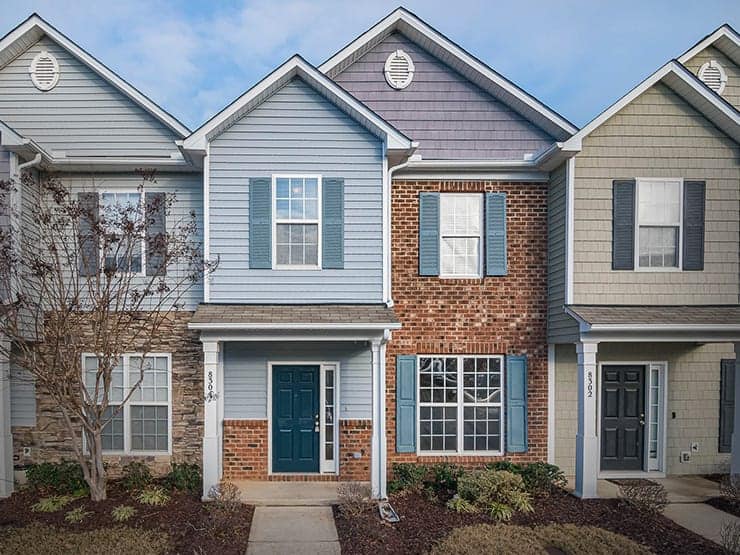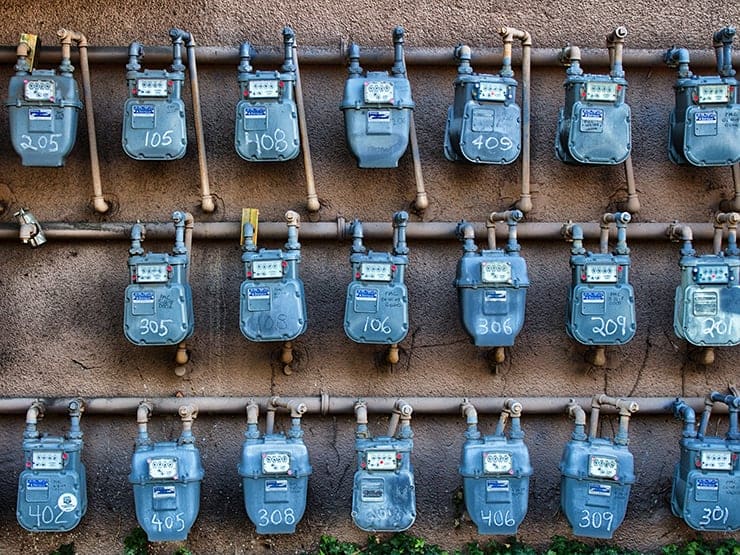“Chaudière Falls—Lévis, Quebec“ by Doug Kerr is licensed under CC BY-SA 2.0
How Much Does it Cost to Live the FIRE Life in Lévis?
Hello, and welcome to interview #8 in the How Much Does it Cost to Live the FIRE Life interview series! Part interview, part spending report, this series will introduce us to FIRE* seekers from all over the world.
They’ll reveal their essential spending and money-saving tips—all to help us learn new ways to save on our own expenses. As a bonus, we’ll also get to discover the unique advantages and challenges of living in different places around the globe.
*FIRE stands for financial independence, retire early. It’s also known as FI—financial independence. For more info, see my FI School series—it’ll teach you everything you need to know about FI (and FIRE).
About the interview series
I created an intro page for this interview series to help explain what it’s about, what’s included (or not) and why. I’ll also link to all the interviews from the intro page—so check back there to see the entire collection.
Jump to the series intro: How Much Does it Cost to Live the FIRE Life? (The Interview Series)
Disclosure: These interviews may include affiliate links. That means I’ll receive a commission if you make a purchase through my links—at no extra cost to you. Thank you!
Interview #8: Fire Trekker in Lévis, Québec
Today, we’ll meet Fire Trekker, who lives in beautiful Lévis, Québec. She cleverly manages to halve nearly all her expenses by living with a roommate—her sister! I’m in awe of her incredibly low spending, which, for most people, would qualify as Lean (or even Bare-bones) FIRE.
However, for Fire Trekker, it’s just her regular FIRE spending. She lives a comfortable, happy life and feels no need to spend more than she does. I love that!
Fire Trekker is also a blogger and shares more of her story and numbers on her bilingual blog, Save Long and Prosper. Her approach to money and investing is very similar to mine, so I always enjoy reading and learning from her posts!
I hope you’ll head over to Fire Trekker’s blog to read some of her fantastic content—but not before you read her interview with me! Let’s get started…
Table of Contents
Part 1
Part 2
Part 3
Part 4
Part 1: Getting to know you

Tell us about yourself
I am a 29-year-old woman living in what would be called the Québec City suburbs, or its “south-shore”. The city is called Lévis. It is actually a very affordable city, considering the average income. What makes it extra affordable for me is that I share a 2-bedroom with my sister. So our household is composed of me, my sis and my two cats. 🙂
My sis happens to be on her own journey to FIRE (heavily influenced by me, obviously). That definitely helps keeping our joint spending super low. Having the same mindset is a huge help!
Where are you in your journey to FIRE?
I’d say I’m at about 40% of my target. If I manage to keep up a savings rate of about 50%, it is safe to say I am 4–5 years away from my goal. Ideally, that means sometime before I reach 35!
What type of FIRE are you aiming for? (FIRE, Lean FIRE, or Fat FIRE*)
How Chrissy defines FIRE, Lean FIRE, and Fat FIRE
Some people define Lean FIRE as under $40k in annual spending; FIRE as $40–$100k in annual spending; and Fat FIRE as $100k+ in annual spending.
However, I prefer looser definitions that are not based on hard numbers. That’s because $100k could be Fat FIRE in a small Canadian town but Lean FIRE in San Francisco. That said, here are my definitions:
- Lean FIRE: The essentials with little or no discretionary spending.
- FIRE: The essentials plus a comfortable amount of discretionary spending.
- Fat FIRE: The essentials plus a luxurious amount of discretionary spending.
Most people would qualify my particular type of FIRE as Lean FIRE. I am very frugal for most people. Since the general definition of Lean Fire is anything below 40K of annual expenses, I definitely fall in that category. I am currently spending in total just a little above 20K per year. As soon as I finish paying my car loan, it should drop to 15K easily.
To me, that’s FIRE. I don’t feel the need to spend more. To most, that’s Lean FIRE.
Whatever floats anyone’s boat, I say.
Tell us about your living situation
As previously mentioned, I rent a 2-bedroom apartment in the suburbs with my sister. It’s in a 9-unit building. Currently, we are both working remotely, so there are not many thoughts to have about walkability or transit.
However, when we DID need to go to the office (yes, we work for the same company too), we “carpooled” and shared the gas cost. The office is only 10 km away from my place, so the gas bill wasn’t too expensive either.
We could also have taken the bus, which is super accessible from my place, but the both of us getting a bus pass ($90/month each) did not make any sense in comparison.
Otherwise, we also share home expenses such as electricity (Hydro-Québec), home internet, entertainment subscriptions, groceries, etc. Economies of scale for the win!
Why did you choose to live in Lévis?
I actually come from a very small village. Once I finished high-school, I had to move out from my mom’s to go to college. I ended up choosing Lévis’ college, and I loved the city instantly. I also lived in Québec City for about 3 years, but eventually returned to Lévis. It is much cheaper than Québec City, and still super close to everything.
However, once I reach FIRE, I may very well go back home to my little village. Geographic arbitrage works in any country, right? That would considerably lower my housing costs.
Part 2: The expenses
In this section, Fire Trekker shares her essential expenses and best money-saving tips. But before we get started, let’s review some important notes:
Important notes about the numbers
- Only essential expenses are included.
- Discretionary expenses (e.g. travel, gifts, etc.) are not included.
- Expenses are rounded to the nearest dollar.
- Expenses are displayed in the interviewee’s home currency.
- In this interview, the home currency is Canadian dollars.
- For your convenience, I’ve included a currency converter for each expense.
For detailed explanations about which expenses are included (or not) see my How Much Does it Cost to Live the FIRE Life intro post.
1. How much does housing cost in Lévis?

Rent ($500/month; $6,000/year) 
The rent for our 2-bedroom apartment is around $1,000/month, so my part is $500. It’s a huge advantage to live with a roommate for that. Otherwise, I tried living by myself a couple of years, but I ended up paying above $700 for much crappier apartments. I’ve had a roommate for five years now. One of the best financial decisions I’ve made!
Property tax ($0) 
I have none of that since I am renting.
Strata/HOA fees ($0) 
I don’t even know what that is, so I think it is safe to say I don’t have that expense. 🙂
Tenant insurance ($14/month; $174/year) 
Another huge advantage to renting is I don’t need to pay for expensive home insurance. Instead, I can get tenant insurance just to cover my belongings. For that, I pay a ‘huge’ $14/month. Yay!
Since I don’t have that many belongings, there is not a lot to insure. I also do not like to be over-insured. As Mr. Money Mustache says, insurance is just a tax for people who are bad at math. 😉
Honestly, if ever something happened, and I were to lose everything, I doubt I would buy back exactly every little thing I own. I’d buy back the essential and I’d probably buy it used anyway. This sort of mentality helps keep the insurance cost pretty low.
Chrissy’s note: Square One Insurance is my favourite source for home, condo and tenant insurance—use my referral link for a $25 bonus!
Home maintenance ($40/month; $480/year) 
This category includes: home maintenance, repairs, cleaning, and improvements; household goods and supplies; furniture; and appliances.
This category is also pretty low, due to me renting my place. Any maintenance, repairs or home improvement are taken care of by my landlord.
Otherwise, I have a pretty minimalist home. I don’t own all that much and what I DO buy, I will always shop around until I get the very best deal. Most of the time, it ends up being used. Just to give an example: I bought my fridge used from a colleague in 2011 for $90. So for furniture and appliance, I think it’s safe to estimate $240/year, at most.
For household goods and supplies, it is hard to estimate for me since I always sneak everything in my groceries budget. I’ll guesstimate with maybe the equivalent of $20/month, so $240/year.
2. How much does transportation cost in Lévis?

Vehicle insurance ($48/month; $576/year) 
We are pretty lucky in Québec with our car insurance. Whenever I read from other Canadians about car insurance, I realize how low our premiums are. For a 2016 Mitsubishi Lancer, with full coverage, I pay $48/month or $576/year.
Gas ($40/month; $480/year) 
I barely drive 10,000 km per year as it is, and mostly split the gas bill with my sister. She doesn’t have a license or a car, so she benefits from my car as much as I do. That ends up costing me, on average, about $10 per week or $520/year.
Vehicle maintenance ($17/month; $204/year) 
My car is still pretty recent, so besides the usual oil change, I don’t have much in this category (yet). Since I have two sets of wheels for both summer and winter tires, my grandfather actually takes care of switching them every spring and fall. How nice of him, huh?
Bike maintenance ($10/month; $120/year) 
I do take my bike every spring to the bike shop for a good tune-up that usually costs around $100. I should definitely look into DIY-ing that, eventually. 🙂
Parking and tolls ($0) 
Living in the suburbs is great, as there are basically no parking and toll fees anywhere. So for my day-to-day life, that’s another big zero here.
Transit ($0) 
I do not use our public transit. Ironically, it would end up being much more costly than using my car.
3. How much does food cost in Lévis?

Groceries ($217/month; $2,600/year) 
Most people think my food budget is super low. Well, I guess it is. I spend about $100 every two weeks, so that’s $2,600 per year. My secret is a lot of planning, making lists, buying in bulk and on sale, meal prepping and making sure nothing goes to waste.
Also, no, I do NOT just eat pasta and beans to keep costs low. I have actually been eating a ketogenic diet for a couple of years now, so I mostly eat non-processed food, and a lot of meat. What actually helps keep the costs really low is practising intermittent fasting on top of it.
I usually eat only one or two meals per day, no snacks. That means an average of about $4 per meal.
Related reading: How to Save Money on Groceries (36 Valuable Tips) and Detailed Flashfood Review (Groceries for 50-70% Off)
Eating out ($20/month; $240/year) 
I very rarely eat out, even in a non-Covid world. I like to know exactly what’s in my plate. Cooking for myself is the best option there. Fortunately, I actually enjoy cooking very much. Cooking and doing the groceries myself also helps to know what meals actually cost.
That means I usually find it insulting to pay outrageous prices in a restaurant for a meal I could have made better, for a much lower cost. So unless it’s for a very special occasion (and I’ll choose wisely from the menu), I just don’t eat out.
4. How much do utilities and bills cost in Lévis?

Natural gas ($0) 
I don’t have that.
Electricity ($30/month; $360/year) 
My apartment happens to be right in the middle of the building, so I’d say my electricity costs are below average. We get heat from everyone around. 🙂 I also much prefer to put on a sweater and hide under a blanket, rather than crank up the thermostat. Once the cost is split with my sis, I end up paying only $30 per month for electricity. I’m pretty happy about it!
Water ($0) 
This expense is actually included in the electricity bill from Hydro-Québec.
Garbage and recycling ($0) 
We have no fee for that in Québec.
Internet ($28/month; $330/year) 
I enjoy super low-cost internet through Fizz, which I discovered last year! Unlimited data and sufficient speed for remote work for just $55 per month, which I split with my sis. And the longer you stay with Fizz, the more perks you get. I absolutely love it.
Home phone ($0) 
I don’t have a home phone line. Who does, nowadays?
Cell phone ($30/month; $360/year) 
Again, I manage to keep my cellphone bill super low with Fizz. For 1GB of data, I pay $31 per month. During this pandemic, I see absolutely no need to have any more data than that.
Readers from my blog have used my promo code (N5MMB) a couple of times now, giving both my reader and myself bonuses ranging from $25 to $50. I actually haven’t needed to pay a cellphone bill since October, thanks to those bonuses. 🙂
Streaming entertainment ($15/month; $180/year) 
I use Netflix and Spotify. Shame on me, right? I share the cost again with my sister, so that’s not too bad. We DO use those services quite a lot (especially during this pandemic). I might revisit the need for those eventually. But right now, I have no problem spending money for those.
5. How much do other essentials cost in Lévis?

Life and disability insurance ($0) 
All paid by my employer.
Medical insurance ($0) 
Same as above.
Out-of-pocket medical expenses ($0) 
I am gratefully super healthy (knocking on wood), so I really have no expenses in that category. If any, it’ll be covered by my medical insurance.
Clothing and footwear ($20/month; $240/year) 
I very rarely buy new clothes and when I do, it’s almost always used, either from someone selling on Facebook Market or in a thrift store. I think $240 per year is a reasonable estimate.
Personal care ($0) 
This category includes: haircuts, toiletries and grooming services and supplies.
Nothing here as I buy those kind of products at the same time as I buy groceries, so it’s sort of integrated in my food budget. As for haircuts, I might go for a haircut once every two years and I go to the cheapest place, or I simply cut my own hair.
Technology ($8/month; $100/year) 
This category includes essential technology: software and hardware purchases, upgrades, maintenance, and repairs. Non-essentials (video games and consoles, e-readers, security cameras, etc.) aren’t included.
I very rarely spend money in this category. I’ll buy a new (used) phone when mine dies, and the same applies to basically all new electronics. It’s not something that happens every month (or year, even!) I also always use free apps or softwares. I’ll say an average of maybe $100/year, since tech can be costly, but I suspect it’s much lower than that.
Part 3: Adding it all up
Now that we’ve detailed all of Fire Trekker’s essential expenses, it’s time to add everything up in some nice, organized tables!
Important notes about the numbers
- Only essential expenses are included.
- Discretionary expenses (e.g. travel, gifts, etc.) are not included.
- Expenses are rounded to the nearest dollar.
- Expenses are displayed in the interviewee’s home currency.
- In this interview, the home currency is Canadian dollars.
- For your convenience, I’ve included a currency converter in each section. I hope you find it useful!
For detailed explanations about which expenses are included (or not) see my How Much Does it Cost to Live the FIRE Life intro post.
How much does it cost to live the FIRE life in Lévis?
1. Housing
| Expense | Monthly (CAD) | Annual (CAD) |
|---|---|---|
| Rent | $500 | $6,000 |
| Property tax | $0 | $0 |
| Strata/HOA fees | $0 | $0 |
| Tenant insurance | $14 | $174 |
| Maintenance | $40 | $480 |
| TOTAL | $554 | $6,654 |
2. Transportation
| Expense | Monthly (CAD) | Annual (CAD) |
|---|---|---|
| Vehicle insurance | $48 | $576 |
| Gas | $40 | $480 |
| Vehicle maintenance | $17 | $204 |
| Bike maintenance | $10 | $120 |
| Parking and tolls | $0 | $0 |
| Transit | $0 | $0 |
| TOTAL | $115 | $1,380 |
3. Food
| Expense | Monthly (CAD) | Annual (CAD) |
|---|---|---|
| Groceries | $217 | $2,600 |
| Eating out | $20 | $240 |
| TOTAL | $237 | $2,840 |
4. Utilities and bills
| Expense | Monthly (CAD) | Annual (CAD) |
|---|---|---|
| Natural gas | $0 | $0 |
| Electricity | $30 | $360 |
| Water | $0 | $0 |
| Garbage and recycling | $0 | $0 |
| Internet | $28 | $330 |
| Home phone | $0 | $0 |
| Cell phones | $30 | $360 |
| Streaming entertainment | $15 | $180 |
| TOTAL | $105 | $1,260 |
5. Other essentials
| Expense | Monthly (CAD) | Annual (CAD) |
|---|---|---|
| Life and disability insurance | $0 | $0 |
| Medical insurance | $0 | $0 |
| Out-of-pocket medical expenses | $0 | $0 |
| Clothing and footwear | $20 | $240 |
| Personal care | $0 | $0 |
| Technology | $8 | $100 |
| TOTAL | $20 | $240 |
Grand totals
| Expense | Monthly (CAD) | Annual (CAD) |
|---|---|---|
| Housing | $554 | $6,654 |
| Transportation | $115 | $1,380 |
| Food | $237 | $2,840 |
| Utilities and bills | $103 | $1,230 |
| Other essentials | $20 | $240 |
| TOTAL | $1,029 | $12,344 |
Part 4: Other expenses
This is a special section that’s just for fun! It’s the place for my interviewees to mention any expenses that they’ve done a really good job of optimizing and/or just want to share.
These expenses won’t be included in the totals (just to keep things as standardized as possible). I hope you find this section interesting and informative. Here are a couple of additional expenses that Fire Trekker wanted to share:
Pets
For pets, or in my case cats, some people would say I spend a lot. I pay around $40 a month, or $480 a year. That’s basically for food and litter. However, I try to buy the best quality food for them and hopefully avoid medical costs in the future. I also try to buy the biggest bag of food I can find, which usually ends up being a better deal than smaller bags. Since this is a recurring cost, whenever there’s a sale, I will load up.
I want my cats to be healthy and stay with me as long as possible, so this is NOT a category where I’ll make sacrifices. Quality food is mandatory.
Charity
Also, I make sure to donate a certain amount of money to charities I love throughout the year. That goes to show that it’s not all about saving money and building our nest egg. I believe we all need to think about how lucky we are on our journey to FIRE and sometimes, it doesn’t hurt to give back.
Chrissy’s closing thoughts
Thanks to Fire Trekker for sharing her expenses. Wow, that is some very optimized spending. Nice work, Fire Trekker! I think I may have been dethroned as the Optimizer Extraordinaire! 😆
It was tough to narrow down the best takeways from Fire Trekker’s interview, but here are a couple that I’d like to highlight:
Roommates
Fire Trekker’s willingness to live with a roommate is, in my opinion, the biggest contributor to her low cost of living. By living together, she and her sister are not only able to split their housing costs, but also their transportation costs, utilities, and other expenses.
This translates into massive savings and an improvement in their standard of living. As mentioned in her interview, living with roommates has allowed Fire Trekker to live in larger, nicer accommodations while paying less.
Admittedly, cohabiting with others isn’t always easy. It requires compromise, patience, and respect for boundaries. However, if you’re able to match yourself with good roommates, you could cut your housing and other expenses by 50% or more!
Lean FIRE versus FIRE
I love what Fire Trekker had to say about her spending:
“I am currently spending in total just a little above 20K per year. As soon as I finish paying my car loan, it should drop to 15K easily. To me, that’s FIRE. I don’t feel the need to spend more. To most, that’s Lean FIRE.”
This quote reiterates two things that I can’t help but mention again:
- Low spending does not automatically lead to misery and deprivation. (If you’re suffering, you’re doing it wrong!) For FIRE-seekers, frugality is about deliberate, mindful optimization—not misery!
- As I stated earlier, basing the types of FIRE on dollar amounts doesn’t make sense to me! Instead, it should be based on how much spending your nest egg provides, in your specific situation. (For example: FIRE in Lévis could potentially be Fat FIRE in the small village Fire Trekker grew up in!)
Lean abundance
I would sum up Fire Trekker’s approach to FIRE as ‘lean abundance’. She’s optimized and lean with most of her spending, but spends from a place of abundance on things that are important to her: her keto diet, her cats, and giving to others.
If you come across a FIRE naysayer who thinks we all live sad, meagre lives, please send them to this interview or Fire Trekker’s blog. She proves that ‘lean abundance’ is a fantastic way to live!
Connect with Fire Trekker
I hope you enjoyed Fire Trekker’s interview! For more of her content, be sure to visit her on her blog, Save Long and Prosper or connect with her on Twitter and Facebook.
Share your thoughts
Were you surprised by Fire Trekker’s essential expenses? Are any of them significantly different from where you live? Share your thoughts in the comments, along with your own tips!
Jesse lives in picturesque Rochester, New York and embraces what he calls ‘bimodal spending’ (which I LOVE)! Find out more about this and more in his interview.
Carrie and her family live in a suburb near Detroit, Michigan. They keep their expenses low by making good use of one of my favourite FI superpowers!
Visit the intro page to learn more about the what and why behind the series and access the complete list of interviews.
Support this blog
If you liked this article and want more content like this, please support this blog by sharing it! Not only does it help spread the FIRE, but it lets me know what content you find most useful. (Which encourages me to write more of it!)
You can also support this blog by visiting my recommendations page and purchasing through the links. Note that not every link is an affiliate link—some are just favourite products and services that I want to share. 🙂
As always, however you show your support for this blog—THANK YOU!








14 Comments
Maria @ Handful of Thoughts
May 12, 2021 at 6:22 amWow Fire Trekker is super optimized. I’ve read her blog before but never realized how low her annual baseline expenses were.
Having a roommate or roommates is a real game changer. When we bought our first home we had family members and friends live with us for the first few years and it definitely helped us pay off our mortgage as fast as we did. Now that our family has grown roommates are less of an optimal choice for us but we are glad we had them when we did.
Chrissy
May 12, 2021 at 3:48 pmHi Maria—I was also unaware of just how frugal Fire Trekker is! Sharing accommodations with others is an amazing way to get ahead. Those who are able to take advantage of it stand to benefit financially for decades after.
Moreover, if your roommates happen to be friends and/or family, there’s the double benefit of getting to spend more quality time together. 👍
Court @ Modern FImily
May 12, 2021 at 6:33 amAmazing numbers FIRE Trekker!! We too lived with roomate’s all throughout our 20s which greatly sped up our FI journey. Sorry Chrissy, but you’re right, as the issuer of “Optimizer Extraordinaire” title, your title has now been passed along! 🤣
Chrissy
May 12, 2021 at 3:56 pmHi Court—young adulthood is the perfect time for roommates! Life is simpler and more flexible at that time, so it’s easier and more enjoyable to cohabit with others at that stage. As you and Nic have shown, it can go a long way in helping you start your financial life on the right foot.
LOL, I’m more than happy for you to crown Fire Trekker as the new “Optimizer Extraordinaire”. She’s certainly a worthy and deserving candidate!
Liquid
May 12, 2021 at 9:55 amGreat plan and execution FIRE Trekker. 🙂 I also had the goal of becoming FI by age 35. I’m sure you can make it too.
Saving half your income is a major accomplishment. Keep it up. 👍
You’re right, Chrissy. Matching yourself up with a suitable roommate can save a lot of money on housing expenses. It’s like a simple way to house hack even if you don’t own your own property.
Chrissy
May 12, 2021 at 4:00 pmHi Liquid—all you young ‘uns are making me feel old! But seriously, it makes my heart glow to hear of so many young people striving for and achieving FI. It results in so many positive ripple effects for society as a whole.
You’re absolutely right about good roommates—it’s a fantastic, simple house hack, whether you own or rent. I’d love to see more people taking advantage of this. It just makes so much sense!
Mrs FDU
May 12, 2021 at 5:00 pmThat is one frugal woman! Good on her for being able to drop her expenses so much!
Chrissy
May 12, 2021 at 8:23 pmHi Mrs. FDU—she’s amazingly frugal! I love it. Thanks so much for reading and commenting. ❤️
David @ Filled With Money
May 12, 2021 at 6:24 pmNice to see you on here, Fire Trekker. I like reading your monthly updates on your blog. It’s helpful.
Chrissy
May 12, 2021 at 8:25 pmHi David—I also love Fire Trekker’s monthly updates! Thanks for reading both of our blogs. 🙂
Teresa
May 14, 2021 at 10:21 amI finally find some that says exactly how I feel about eating out! I like to know what is going into my body and also do not see the value in paying at least 4 times more than I can make it for!
Chrissy
May 14, 2021 at 3:13 pmHi Mom—it’s funny, I thought of you when I read that part of Fire Trekker’s interview! There’s certainly a lot of value in cooking restaurant meals at home. It’s fortunate that you’re both good at it and enjoy it! 😋
Ana
May 14, 2021 at 10:32 amChrissy, your closing thoughts really sum up my take away from this interview. I’m in awe of Fire Trekker’s smart planning and optimized financial set up– at 29? Super job with designing a comfortable lifestyle, enjoying good roommates (cats included) and carving out room in the budget to donate. Thank you for sharing such an inspiring story.
Chrissy
May 14, 2021 at 3:21 pmHi Ana—you’re right that Fire Trekker’s accomplished a lot at a young age. I’d be thrilled if my kids grew up to be as thoughtful and optimized with their spending and lifestyle! I love that there are young people like her sharing their story. Perhaps one day, we’ll see more people starting off on the right financial foot from a young age.